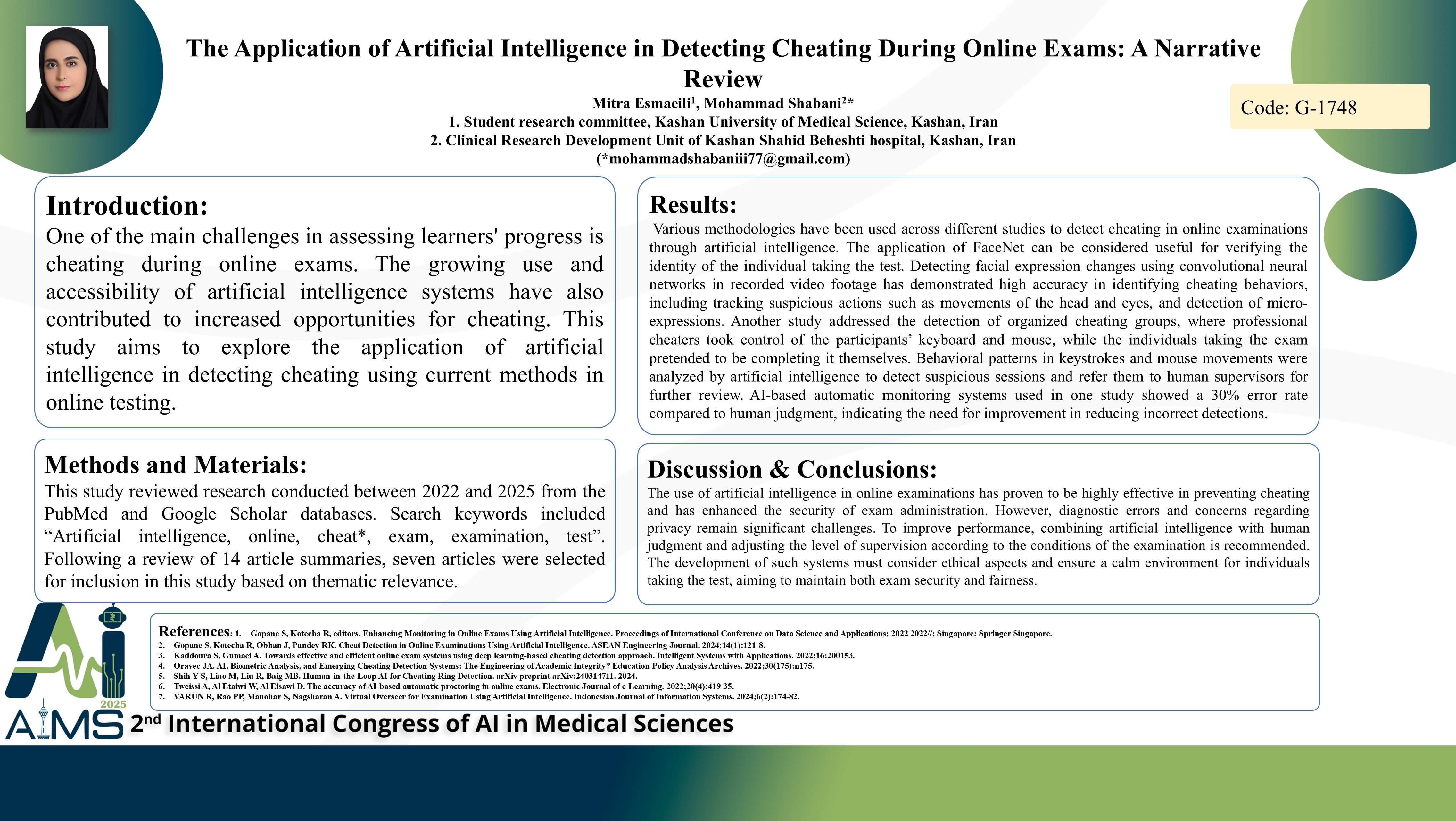کاربرد هوش مصنوعی در تشخیص تقلب حین برگزاری امتحانات آنلاین: یک مرور روایی
کد: G-1748
نویسندگان: Mitra Esmaeili ℗, Mohammad Shabani *
زمان بندی: زمان بندی نشده!
برچسب: دستیار مجازی هوشمند
دانلود: دانلود پوستر
خلاصه مقاله:
خلاصه مقاله
Background and aims: One of the main challenges in assessing learners' progress is cheating during online exams. The growing use and accessibility of artificial intelligence systems have also contributed to increased opportunities for cheating. This study aims to explore the application of artificial intelligence in detecting cheating using current methods in online testing. Method: This study reviewed research conducted between 2022 and 2025 from the PubMed and Google Scholar databases. Search keywords included “Artificial intelligence, online, cheat*, exam, examination, test”. Following a review of 14 article summaries, seven articles were selected for inclusion in this study based on thematic relevance. Results: Various methodologies have been used across different studies to detect cheating in online examinations through artificial intelligence. The application of FaceNet can be considered useful for verifying the identity of the individual taking the test. Detecting facial expression changes using convolutional neural networks in recorded video footage has demonstrated high accuracy in identifying cheating behaviors, including tracking suspicious actions such as movements of the head and eyes, and detection of micro-expressions. Another study addressed the detection of organized cheating groups, where professional cheaters took control of the participants’ keyboard and mouse, while the individuals taking the exam pretended to be completing it themselves. Behavioral patterns in keystrokes and mouse movements were analyzed by artificial intelligence to detect suspicious sessions and refer them to human supervisors for further review. AI-based automatic monitoring systems used in one study showed a 30% error rate compared to human judgment, indicating the need for improvement in reducing incorrect detections. Conclusion: The use of artificial intelligence in online examinations has proven to be highly effective in preventing cheating and has enhanced the security of exam administration. However, diagnostic errors and concerns regarding privacy remain significant challenges. To improve performance, combining artificial intelligence with human judgment and adjusting the level of supervision according to the conditions of the examination is recommended. The development of such systems must consider ethical aspects and ensure a calm environment for individuals taking the test, aiming to maintain both exam security and fairness.
کلمات کلیدی
Artificial Intelligence, Cheating Detection, Online
